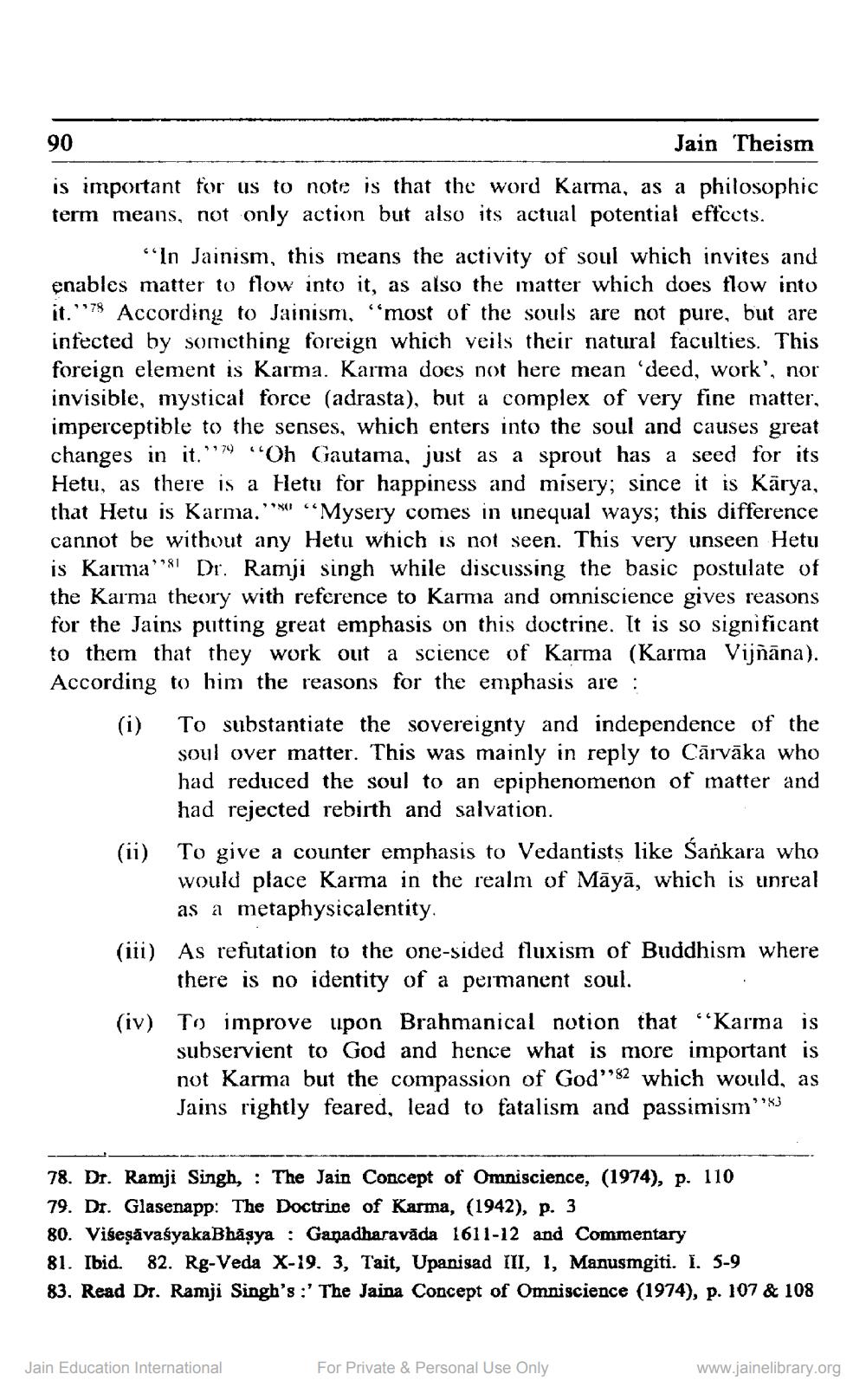________________
90
Jain Theism
is important for us to note is that the word Karma, as a philosophic term means, not only action but also its actual potential effects.
“In Jainism, this means the activity of soul which invites and enables matter to flow into it, as also the matter which does flow into it."7% According to Jainism, most of the souls are not pure, but are infected by something foreign which veils their natural faculties. This foreign element is Karma. Karma does not here mean 'deed, work', nor invisible, mystical force (adrasta), but a complex of very fine matter, imperceptible to the senses, which enters into the soul and causes great changes in it."??! "Oh Gautama, just as a sprout has a seed for its Hetu, as there is a Hetu for happiness and misery; since it is Kārya, that Hetu is Karma. '*** “Mysery comes in unequal ways; this difference cannot be without any Hetu which is not seen. This very unseen Hetu is Karma??! Dr. Ramji singh while discussing the basic postulate of the Karma theory with reference to Karma and omniscience gives reasons for the Jains putting great emphasis on this doctrine. It is so significant to them that they work out a science of Karma (Karma Vijnana). According to him the reasons for the emphasis are : (i) To substantiate the sovereignty and independence of the
soul over matter. This was mainly in reply to Cārvāka who had reduced the soul to an epiphenomenon of matter and
had rejected rebirth and salvation. (ii) To give a counter emphasis to Vedantists like Śankara who
would place Karma in the realm of Māyā, which is unreal
as a metaphysicalentity, (iii) As refutation to the one-sided fluxism of Buddhism where
there is no identity of a permanent soul. (iv) To improve upon Brahmanical notion that “Karma is
subservient to God and hence what is more important is not Karma but the compassion of God'82 which would, as Jains rightly feared, lead to fatalism and passimism""%3
78. Dr. Ramji Singh, : The Jain Concept of Omniscience, (1974), p. 110 79. Dr. Glasenapp: The Doctrine of Karma, (1942), p. 3 80. ViseşāvaśyakaBhāsya : Ganadharavāda 1611-12 and Commentary 81. Ibid. 82. Rg-Veda X-19. 3, Tait, Upanisad III, 1, Manusmgiti. I. 5-9 83. Read Dr. Ramji Singh's :' The Jaina Concept of Omniscience (1974), p. 107 & 108
Jain Education International
For Private & Personal Use Only
www.jainelibrary.org




